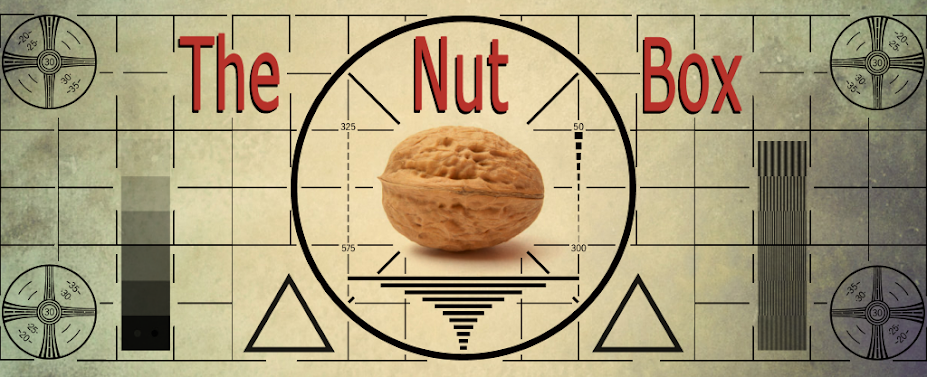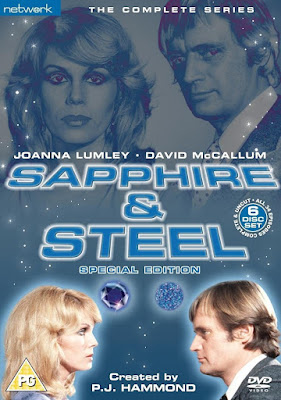I saw it first when I was a kid. I don't remember what age exactly, but it blew my young mind. I saw some of it again in my twenties. It blew my mind once more. You can guess where this is going... yup, and again in my thirties, mind blown. During all that time I encountered nothing else quite like it, so in my experience it's unique.
Wikipedia notes that the show's creator, Peter J. Hammond, gave it the working title of The Time Menders; and while not as seductive or as pleasing to say as Sapphire and Steel, it does a better job at describing what the series is as a whole.
The enigmatic duo are 'operators' that fix time when it goes wrong or when parts of it leak or break through barriers into other parts. It's known that there are 127 operators in total, of which Sapphire (Joanna Lumley) and Steel (David McCallum) are two. Their full role is a mystery, but part of their job is to mend fractures that exist between temporal states; they're a line of defence, preventing the malicious side of past, present and future from destroying itself and everything within it. Time itself is described as a corridor that encompasses all things, so in a way the operators are like interdimensional hall monitors maintaining order.
Joanna Lumley is radiant and sympathetic as Sapphire, although she can paradoxically be sometimes cold and detached at the same time. David McCallum is austere and methodical as Steel. Yes, both are like their names, but I've often wondered if the names came first or if the personalities preceded them.
Stories (called 'assignments') are multi-part, so while there are 34 episodes in total there are only 6 assignments and it's best if you make time to watch all of one assignment in one sitting. Each assignment has a resolution but don't expect to have all questions answered. It's deliciously cryptic but not to the point of bafflement. The editing and use of sound are excellent, keeping events tense and flowing, always engaging and often eerie - at times even chilling.
I feel that the low budget actually works in the production's favour. The feeling that we're on a sound stage adds to the unsettling nature of the environments. It's almost as if for the duration of the assignment they've lost the intangible sense of safety that we unconsciously attribute to traditional notions of reality.
Wikipedia notes that the show's creator, Peter J. Hammond, gave it the working title of The Time Menders; and while not as seductive or as pleasing to say as Sapphire and Steel, it does a better job at describing what the series is as a whole.
The enigmatic duo are 'operators' that fix time when it goes wrong or when parts of it leak or break through barriers into other parts. It's known that there are 127 operators in total, of which Sapphire (Joanna Lumley) and Steel (David McCallum) are two. Their full role is a mystery, but part of their job is to mend fractures that exist between temporal states; they're a line of defence, preventing the malicious side of past, present and future from destroying itself and everything within it. Time itself is described as a corridor that encompasses all things, so in a way the operators are like interdimensional hall monitors maintaining order.
Joanna Lumley is radiant and sympathetic as Sapphire, although she can paradoxically be sometimes cold and detached at the same time. David McCallum is austere and methodical as Steel. Yes, both are like their names, but I've often wondered if the names came first or if the personalities preceded them.
Stories (called 'assignments') are multi-part, so while there are 34 episodes in total there are only 6 assignments and it's best if you make time to watch all of one assignment in one sitting. Each assignment has a resolution but don't expect to have all questions answered. It's deliciously cryptic but not to the point of bafflement. The editing and use of sound are excellent, keeping events tense and flowing, always engaging and often eerie - at times even chilling.
I feel that the low budget actually works in the production's favour. The feeling that we're on a sound stage adds to the unsettling nature of the environments. It's almost as if for the duration of the assignment they've lost the intangible sense of safety that we unconsciously attribute to traditional notions of reality.
34 episodes, approx 25 minutes each.
5 side doors out of 5


No comments:
Post a Comment